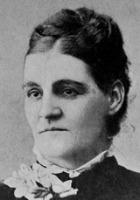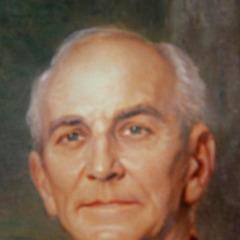Robert Burns Quotes - Page 3
The honest man, though e'er sae poor, Is king o' men, for a' that!
Song: A Man's A Man For A' That
Letter to Thomas Sloan, September 1, 1791.
Robert Burns, Gilbert BURNS, Allan Cunningham (1840). “The Works of Robert Burns. With Life by Allan Cunningham, and Notes by Gilbert Burns [and Others], Etc. [With a Portrait and Facsimiles.]”, p.436
'Sketch' inscribed to Charles James Fox (1800)
Look abroad through Nature's range, Nature's mighty law is change.
Robert Burns (1826). “The works of Robert Burns: with an account of his life, and a criticism on his writings. To which are prefixed, some observations on the character and condition of the Scottish peasantry”, p.97
I'm truly sorry man's dominion has broken Nature's social union.
'To a Mouse' (1786)
Should auld acquaintance be forgot, And never brought to min?
"Auld Lang Syne" l. 1 (1796). JamesWatson, Choice Collection of Comic and Serious Scots Poems (1711), contains a ballad beginning: "Should old acquaintance be forgot, / And never thought upon, / The flames of love extinguished, / And freely past and gone? / Is thy kind heart now grown so cold / In that loving breast of thine, / That thou canst never once reflect / On old-long-syne?"
Robert Burns (1819). “The Prose Works of Robert Burns: Containing His Letters and Correspondence, Literary and Critical, and Amatory Epistles Including Letters to Clarinda, &c., &c”, p.215
"To a Mouse" l. 39 (1786) See Dickens 67; Disraeli 7; Modern Proverbs 102; Orwell 17; Plautus 3; Proverbs 2; Sayings 25
Robert Burns, Hamilton PAUL (1819). “The Poems & Songs of Robert Burns, with a Life of the Author ... To which is Subjoined, an Appendix, Consisting of a Panegyrical Ode, and a Demonstration of Burns' Superiority to Every Other Poet as a Writer of Songs, by the Rev. Hamilton Paul”, p.223
Robert Burns (1819). “The poems & songs of Robert Burns, to which is subjoined a panegyrical ode by H. Paul”, p.89
The wisest man the warl' e'er saw, He dearly loved the lasses, O.
Robert Burns (1860). “Poems & Songs”, p.117
'A Red Red Rose' (1796) (derived from various folk-songs)
Robert Burns, James Currie (1835). “The Works of Robert Burns: With an Account of His Life, and a Criticism on His Writings”, p.140
Robert Burns, James Currie, Gilbert Burns (1820). “The Works of Robert Burns;: With an Account of His Life, and a Criticism of His Writings, : to which are Prefixed, Some Observations on the Character and Condition of the Scottish Peasantry”, p.49
Pleasures are like poppies spread: You seize the flow'r, its bloom is shed.
'Tam o' Shanter' (1791) l. 59
Robert Burns (1821). “The Caledonian Musical Museum: Being a Collection of the Best Songs, Ancient and Modern”, p.121
'The Cotter's Saturday Night' (1786) st. 6
'Robert Bruce's March to Bannockburn' (1799) (also known as 'Scots, Wha Hae')
Robert Burns, Robert Chambers (1838). “The Poetical Works of Robert Burns. To which are Now Added, Notes Illustrating Historical, Personal, and Local Allusions. [The Editor's Preface Signed: R. C., I.e. Robert Chambers.]”, p.82







